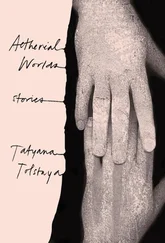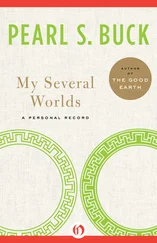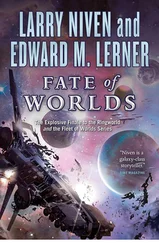Harry Williams - Worlds That Weren't
Здесь есть возможность читать онлайн «Harry Williams - Worlds That Weren't» весь текст электронной книги совершенно бесплатно (целиком полную версию без сокращений). В некоторых случаях можно слушать аудио, скачать через торрент в формате fb2 и присутствует краткое содержание. Город: New York, Год выпуска: 2002, ISBN: 2002, Издательство: Roc Hardcover, Жанр: Альтернативная история, на английском языке. Описание произведения, (предисловие) а так же отзывы посетителей доступны на портале библиотеки ЛибКат.
- Название:Worlds That Weren't
- Автор:
- Издательство:Roc Hardcover
- Жанр:
- Год:2002
- Город:New York
- ISBN:978-0451458865
- Рейтинг книги:5 / 5. Голосов: 1
-
Избранное:Добавить в избранное
- Отзывы:
-
Ваша оценка:
- 100
- 1
- 2
- 3
- 4
- 5
Worlds That Weren't: краткое содержание, описание и аннотация
Предлагаем к чтению аннотацию, описание, краткое содержание или предисловие (зависит от того, что написал сам автор книги «Worlds That Weren't»). Если вы не нашли необходимую информацию о книге — напишите в комментариях, мы постараемся отыскать её.
Worlds That Weren't — читать онлайн бесплатно полную книгу (весь текст) целиком
Ниже представлен текст книги, разбитый по страницам. Система сохранения места последней прочитанной страницы, позволяет с удобством читать онлайн бесплатно книгу «Worlds That Weren't», без необходимости каждый раз заново искать на чём Вы остановились. Поставьте закладку, и сможете в любой момент перейти на страницу, на которой закончили чтение.
Интервал:
Закладка:
Sokrates looked around again. This time, when he looked…he saw. Over the crest of a nearby hill came men on horseback, peltasts-light-armed foot soldiers-and a solid column of hoplites. No possible way to doubt which side they belonged to, either. At the head of the column rode Alkibiades, his bright hair shining in the sun, a chiton all of purple-an outrageous, and outrageously expensive, garment-marking him out from every other man.
Shouting out their war cry, the Athenian newcomers roared down on the Syracusans. “We are undone!” one of the Syracusan hoplites cried. They broke ranks and ran back toward their polis. Some of them threw away spears and even shields to flee the faster.
Other Syracusans-perhaps a quarter of their number-tried to go on against the Athenian phalanx they’d been fighting. One of those was the hoplite who’d tussled so long against Sokrates. “Yield,” Sokrates urged. “Yield to me, and I will see to it that you suffer no evil.”
“I serve my polis no less than you serve yours, Athenian,” the man answered, and hurled himself at Sokrates once more. Now, though, with the Syracusan line melting away like rotting ice, he fought not Sokrates alone but three or four Athenians. He fought bravely, but he didn’t last long.
“Forward!” an Athenian officer cried. “Forward, and they break. Eleleu! ”
Forward the Athenians went. Hoplites in a body had a chance, often a good chance, against peltasts and horsemen, even if they moved more slowly than their foes. Peltasts could only use their bows and slings and fling javelins from a distance. Likewise, cavalry had trouble closing because the riders would pop off over their horses’ tails if they drove home a charge with the lance. But the panicked, running Syracusans, also hard-pressed by the Athenian hoplites, went down like trees under carpenters’ axes.
Alkibiades at their head, the Athenian horsemen got in among the Syracusans. They speared some and felled others with slashes from their long cavalrymen’s swords. The peltasts tormented the foe with arrows and leaden sling bullets and javelins. And, now roaring, “Eleleu!” like men seized by Furies, the Athenian hoplites rolled over the slower and more stubborn Syracusans.
The whole enemy host might have fallen there in front of their polis. But the defenders on the walls saw what was happening to them. The gate from which the Syracusan phalanx had marched forth flew open again. The Syracusans ran for their salvation. The Athenians ran after them-and with them.
Like a lot of veterans, Sokrates saw what that might mean. No matter how winded, no matter how parched, he was, he shouted, “As fast as we can now, men of Athens! If we get into Syracuse among them, the city is ours!” He made his stubby legs twinkle over the ground.
Up ahead, Alkibiades heard his voice. He waved and made his horse rear, clinging to the animal with his knees and with one hand clutching its mane. Then he too pointed toward that open gate. The horse came down onto all fours. It galloped forward, bounding past the Syracusans on foot. Other riders saw what was toward and followed.
The first Syracusan hoplites were already inside the polis. In stormed the horsemen. They turned on the gate crew, killing some and scattering others. Some of the Syracusan hoplites tried to haul the gates closed. The cavalrymen fought them, delayed them. Athenian peltasts rushed up to the horsemen’s aid. Madness reigned around the gate.
What is madness, Sokrates thought, save the absence of order? Still in good order, the Athenian phalanx hammered its way through the chaos-through the chaos, through the gate, and into Syracuse. The Syracusan women and children and old men wailed in horror. The Athenian hoplites roared in triumph.
Sokrates roared with the rest: “Syracuse is ours!”
Women wept. Wounded men moaned. The stinks of smoke and blood and spilled guts filled the air. A drunk Athenian peltast danced the kordax, howling out filthy words to go with the filthy dance. His pecker flipped up to smack against his stomach at every prancing step. It was all bread and fine fish and wine-especially wine-to Alkibiades. He stood in front of-appropriately enough-the temple of Athena, watching chained Syracusan captives shamble past.
Nikias came up to him, looking slightly-no, more than slightly-dazed. Alkibiades gave his fellow general his prettiest bow. “Hail,” he said, and then, as if Nikias couldn’t see it for himself, “We have Syracuse.”
“Er-yes.” Nikias might see it, but he seemed hardly able to credit it. “We do.”
“Do you believe, then, that the gods have shown I’m innocent of sacrilege?” Alkibiades asked. He wasn’t sure he believed that himself; some of the things Sokrates and Kritias had said about the gods made him have even more questions than he would have had otherwise. But it was important that prominent, conservative Nikias should believe it.
And the older man dipped his head. “Why, yes, son of Kleinias, I do. I must. I don’t see how any man could doubt it, considering what has happened here in Sicily.”
I have to make sure he never talks to Sokrates, Alkibiades thought. He’d find out exactly how a man could doubt it. Sokrates was a great one for making anybody doubt anything. But there wasn’t much risk that he and Nikias would put their heads together. Sokrates would talk with anyone. Nikias, on the other hand, was a born snob. With another bow, carefully controlled so it didn’t seem mocking, Alkibiades asked, “What did you expect to happen on this campaign?”
Nikias’ eyes got big and round. “I feared…disaster,” he said hoarsely. “I feared our men failing when they tried to wall off Syracuse. I feared our fleet trapped and beaten by the Syracusans. I feared our brave soldiers worsted and worked to death in the mines. I had…dreams.” His voice wobbled.
Grinning, Alkibiades clapped him on the shoulder. “And they were all moonshine, weren’t they? These amateurs made a mistake, and we made them pay for it. We’ll put the people we want into power here-you can always find men who will do what you want-and then, before the sailing season ends, we’ll go back and see what we can do about giving the Spartans a clout in the teeth.”
At that, Nikias’ eyes got bigger and rounder than ever. But he said, “We shall have to be careful here. The men we establish may turn against us, or others may rise up and overthrow them.”
He was right. Naivete and superstition sometimes made him a fool; never stupidity. Alkibiades said, “True enough, O best one. Still, once we’re done here, Syracuse will be years getting her strength back, even if she does turn against us. And that’s what we came west for, isn’t it? To weaken her, I mean. We’ve done it.”
“We have,” Nikias agreed wonderingly. “With the help of the gods, we have.”
Alkibiades’ grin got wider. “Then let’s enjoy it, shall we? If we don’t enjoy ourselves while we’re here on earth, when are we going to do it?”
Nikias sent him a severe frown, the frown a pedagogue might have sent a boy who, on the way to school, paused to stare at the naked women in a brothel. “Is that why you staged a komos last night?”
“I didn’t stage the drinking bout. It just happened,” Alkibiades answered. After a night of revelry like that, his head should have ached as if a smith’s hammer were falling on it. It should have, but it didn’t. Victory made a better anodyne than poppy juice. He went on, “But if you think I didn’t enjoy it, you’re wrong. And if you think I didn’t deserve it, you’re wrong about that, too. If I can’t celebrate after taking Syracuse when nobody thought I could”-he didn’t say the other general had thought that, though he knew Nikias had-“when am I entitled to, by the dog of Egypt?”
Читать дальшеИнтервал:
Закладка:
Похожие книги на «Worlds That Weren't»
Представляем Вашему вниманию похожие книги на «Worlds That Weren't» списком для выбора. Мы отобрали схожую по названию и смыслу литературу в надежде предоставить читателям больше вариантов отыскать новые, интересные, ещё непрочитанные произведения.
Обсуждение, отзывы о книге «Worlds That Weren't» и просто собственные мнения читателей. Оставьте ваши комментарии, напишите, что Вы думаете о произведении, его смысле или главных героях. Укажите что конкретно понравилось, а что нет, и почему Вы так считаете.












